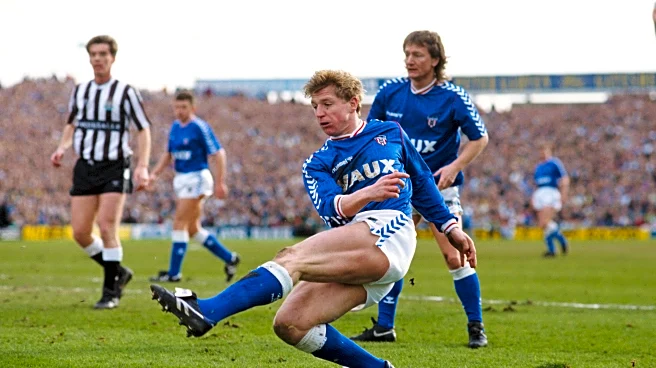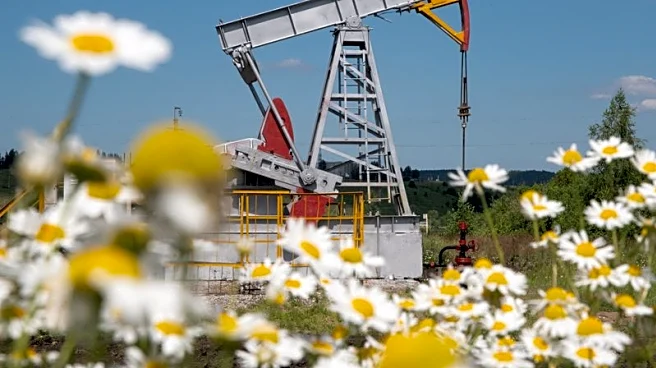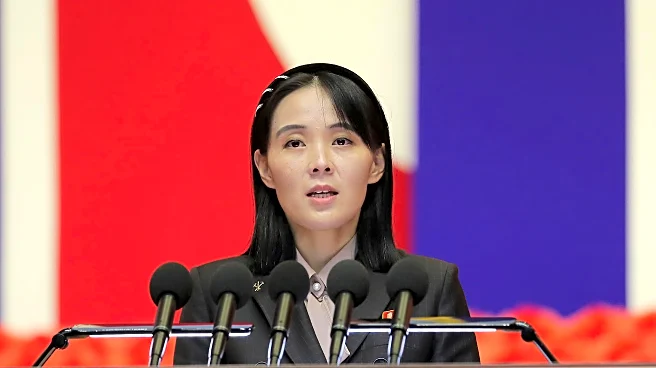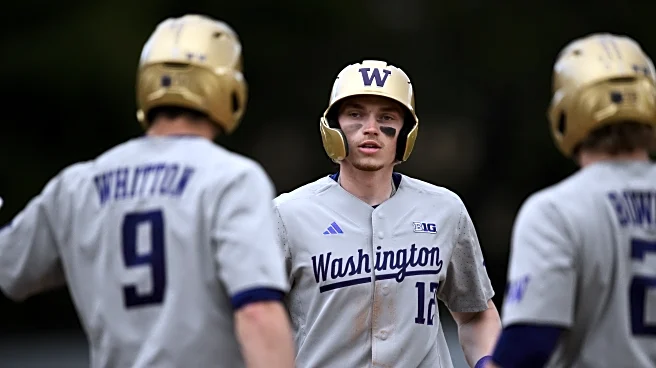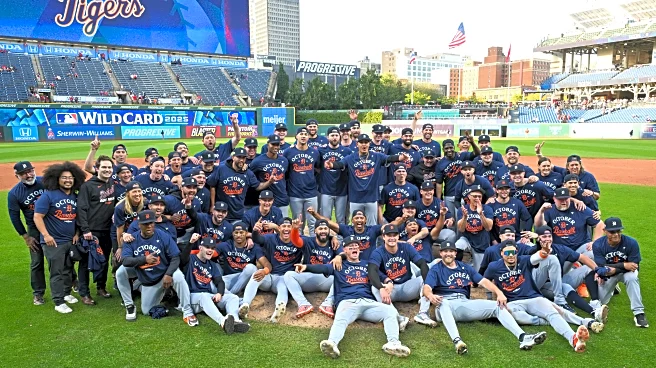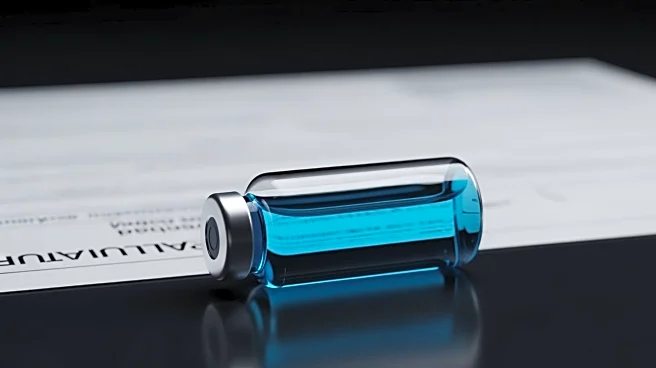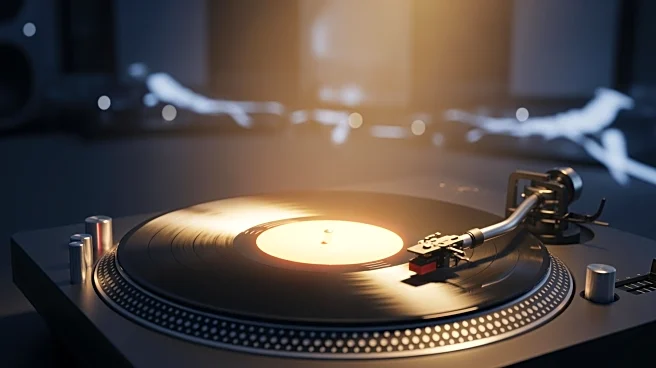The 26th September 1991. The date is ingrained in my memory, burned into my heart. The day Marco Gabbiadini, my first football love, departed Roker Park.
Aged just 23, for four years Marco had been the
star of the show for Sunderland; initially a beacon of hope, then a genuinely class act in his own right. He was coveted by the top clubs, rumours of an international call up were never too far away, and he’d scored goals in the third and second tiers, as well as scoring nine goals in 30 league starts in the top flight.
Marco had everything you’d want in a striker. He was searingly fast, yet had the muscular strength to hold off and bully defenders. He had thighs as thick and powerful as an elephant’s legs. He wasn’t tricky in a Keiron Brady or Allan Johnston sort of way, but could surge past the opposition with a drop of the shoulder. He could score with his left foot, his right foot, and with his head.
He’d score every type of goal, from tap ins to long rangers via an array of solo strikes, and he had a devilish streak too – he’d stand up to the toughest of defenders without second thought, happily leaving some studs on someone in retribution for a bad tackle or some off the ball nastiness.
In his younger years, he occasionally let his temper get the better of him – as he matured, he was able to keep a lid on his emotions and channel his frustration positively.

Gabbiadini’s departure came as something of a surprise a bolt from the blue as Sunderland struggled to get consistency after an unfortunate relegation in 1991. After that last day defeat at Manchester City, Denis Smith kept the squad together and the team was among the favourites to bounce straight back up. Paul Bracewell had been appointed captain in place of Gary Bennett, who’d been stripped of the captaincy after – from memory – failing to turn up for a post-season trip, however the team had been kept together, and it was hoped we’d build on the experience of the season before, and put a strong second tier campaign together.
However, the season had started slowly for both the team and for Marco: A home draw against Derby and a comprehensive 3-0 away win at Barnsley were followed by a poor 4-1 defeat at Millwall. A home win over Oxford saw the lads in 6th place, however defeats at Portsmouth and Swindon – punctuated by a draw at home to Blackburn – meant Sunderland had a meagre eight point haul from the first seven, Marco playing every game, scoring two.
It’s an interesting sidenote to Marco’s time at Sunderland – and a thread that ran through his last weeks at the club – that while the Gates/Gabbiadini partnership is one written into folklore, Smith always seemed to want a big man / little man partnership, with Marco as the latter.
After all, Gabbiadini’s original strike partner was Keith Bertschin; Eric Gates was transfer listed and not even on the bench for Marco’s first two games. It was only an injury to Bertschin against Fulham in Gabbiadini’s second game that saw Gates return to the line up.

Fast forward a few months, and after promotion it was Billy Whitehurst who was the ‘big man’, consigning Gates to the bench for three months before being used as leverage to get Tony Norman into the club. Gates was recalled again, but Thomas Hauser was signed and within weeks had displaced Gates. In one of Hauser’s early games as Marco’s strike partner, Sunderland won 4-0 with a Gabbiadini hat-trick – unfortunately his celebration for his third involved right hooking Ipswich defender Tony Hume, earning him a four game back for his second red card of the season.
Hauser and Gates, and youngsters Warren Hawke and Sean Wharton filled the gaps in Gabbiadini’s absence – and when Marco returned, Hauser missed a few games through injury.
The season after – 89-90 – saw Marco play every game, free from injury and suspensions, scoring 26 goals in 58 games across all competitions. Gates started 46, scoring 10, and Hauser suffering an injury hit campaign, making just 8 starts in all competitions. Hauser’s injury troubles, combined with little to no transfer budget for Smith, meant there was little option but to partner ‘The G Force’
Upon promotion, Gates went to Carlisle, Peter Davenport came in after the club failed to land John Byrne, and the former Manchester United striker started the season as Gabbiadini’s partner. An early season League Cup tie at Bristol City saw Smith experiment with Hauser, Gabbiadini and Davenport in the team, with the latter playing from wide. Hauser opened the scoring after just 28 seconds, but was stretchered off before the half hour with an achilles injury which truthfully he never recovered from – scuppering any plans Smith had of partnering the two permanently that season. Hauser did come back in April, making a scoring return to action in an away defeat to Southampton, and started four of the final games of the season, with Davenport out wide, on the bench, or not named among the subs until the season finale at Maine Road.
And so we move to 1991-92; the final act of Marco’s Sunderland career, and again Smith’s determination to pair him with a big man was evident. The first seven games of the season saw him mainly lining up alongside Thomas Hauser in a partnership that never looked comfortable. The eighth game, away at Charlton, saw Peter Davenport make his first start of the season alongside Gabbiadini– and Marco got a hattrick.

The game after, at home defeat to Grimsby (future Sunderland midfielder Shaun Cunnington grabbing the winner), was to be Gabbiadini’s last in red and white. He didn’t remerge after half time, injury, as it transpired, prematurely curtailing his Sunderland career.
Of course, no one really knew that would be Marco’s last game, and in the post-game press, the speculation centred on who in the squad would be filling in for him over the next two weeks.
Interestingly, Thomas Hauser’s thoughts on the prospect of partnering Peter Davenport were potentially telling.
I think I can work with Dav, because he has the brain to go for the flick ons I can provide.
Smith, meanwhile, was fighting to keep his job after the defeat – and a subsequent league cup defeat to Huddersfield. How quickly sentiment turned regarding Smith was surprising, given the credit he’d earned in the four seasons before. He, in typical Denis fashion, wasn’t going down without a fight, and was laying blame on the board. Speaking on 25th of September, Smith said:
I’m not going to get upset by people giving me stick. I know the fans would like us to have spent money on new players, and so would I. However, there are a lot of reasons why we haven’t been able to go into the transfer market, and the summer safety work on the ground was the single biggest factor.
We are looking to find cash for new players. I’m sure things will start to improve from now on. We are looking to change things. No one can be happy with the situation as it is at the moment.
Suggestions have been made at the board meeting and, if we have to sell to change things that will have to be the case.
It is obvious I have to do something, We can’t go on as we are.
The day after, Gabbiadini was gone. No real rumours, no build up, no nothing.
Out of the blue, Steve Coppell had chosen Marco to replace Arsenal-bound Ian Wright in a £1.8m deal – 25% of which was heading to Bootham Crescent.

Gabbiadini said:
Being in the First Division helped swing it.
I’ve always done quite well in London and if I can establish myself in the side then hopefully international recognition will come again.
Palace are an ambitious club, and I was very impressed with both the chairman and the manager. The first I knew of their interest was on Tuesday night but it didn’t take too much thinking about. The surprising thing was they were about the only club who haven’t been reported as being after me.
I had four great years at Sunderland. I really enjoyed my time there but this is an exciting new challenge, which I needed.
Smith defended his decision, and told reporters he’d had a lot of mail from supporters that was critical of Marco and his performances in recent months.
It’s about winning football matches. People will soon be supporting whoever is doing the business. At the moment we are not.
Marco has been a favourite of the fans. He has been a favourite of mine. But financially, it is a very good deal. It’s a lot of money and we’ve now got to use it ourselves.
In hindsight, it wasn’t a good move for Smith or for Gabbiadini. The team struggled without him, and while the new signings made with the money – John Byrne, Don Goodman, and Anton Rogan individually did well, they couldn’t help the team turn the indifferent form around. In fact, it only got worse, and Smith was sacked after a 3-0 defeat to Oxford in our final game of 1991. Five wins from 16 games post-Marco had left Sunderland in 17th position, and strange decisions – such as playing Gary Bennett at centre forward away at Cambridge, and ditching long-time assistant Viv Busby – raised question marks about Smith’s ability to turn it round.

For Marco, his London adventure didn’t last long, and not long after Smith departed Sunderland, Gabbiadini left Palace for Derby, in a cut-price £1m move. Seven goals in 25 games was deemed not good enough by the Eagles, and he spent five seasons at Derby, helping the club back into the top flight, finishing second to Peter Reid’s Sunderland in 1995-96.
Gabbiadini played 14 games in the top flight for Derby, including lining up for Derby against Sunderland in the infamous Hall/Kubicki game, while Smith’s departure from Roker kicked off a run of unsuccessful managerial appointments – Crosby, Butcher and Buxton.
You just wonder what would have happened for all parties had Smith held his nerve a little longer, on this day, back in 1991. The story for Gabbiadini – and for Smith – could have been completely different.
It would certainly have saved me walking around for a week or two as if my whole world had fallen apart.
If you’d like to hear more about Marco’s departure from Roker, check out Haway The Podcast’s On This Week episode from Tuesday!
